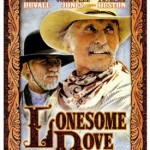I am not persuaded that “house churches” are the only way to do church. I think there is very little in Scripture about the “how” of church. As long as disciples are being made, and we are loving God, and loving others, I can be flexible on most other matters of the church.

However, one blog I read has a post of 10 questions that all believers need to ask themselves about the church they attend. (Note: The website this came from no longer exists, or at least, I could no longer find this post. If you know where this post now resides on the internet, please let me know!).
These questions come from a person who thinks that “home churches” are the only way to go, but I think we all need to ask them. Questioning why we do what we do in church can help us focus on what God says in Scripture, and how we can effectively live it out in our world.
Here is my List of the Top 10 Questions to ask our caring friends and relatives who are concerned that we are in a Home Church:
1. Well Uncle John, we do home church because we see it mentioned in the scriptures like Romans 16:5 and 1 Corinthians 16:19. When you’ve studied why you gather the way you do, what did you discover?
2. Sister Suzi, when you gather together on Sundays, how do you all fulfill 1 Corinthians 14:26? And how did you personally exercise your to the edifying of others last Sunday?
3. Yes, Aunt Jenny. Order in the church is very important, I truly agree. And since the Bible is our source of understanding church order, can you help me to find the Scriptures that identify a single pastor of a single church? I see that pastors are one of several different given to the church, but I can’t seem to find where they are in charge of a church…
4. Cory, you bring up a good point about assembling together with other believers. So that we’re both on the same page, how many are supposed to gather together (minimum) before Christ will be in the midst of them? And also which verse tells me which building we must gather in?
5. Just so I understand you Cousin Andy, are you saying that if I don’t go to YOUR church, I’m not in the will of God? What was the verse on that again? And also, which book in the Bible tells me how to create a 501(c)3 non-profit organization?
6. You’re absolutely right, Neighbor Gene, we don’t have a Praise Team, a Vacation Bible School, and we don’t send our tithes to headquarters. Can you help me find the verses that direct me in these matters so I can walk in obedience like you?
7. How do we pay our tithes? Good question, Ronnie. If I remember right, we follow the New Testament. Can you show me one place in the New Testament (which is after the death of Christ because that’s when the New Testaments come into effect) where I’m directed to tithe? Now if you’re asking about our giving, we give as unto the Lord (often times above 10%) to the poor we meet on our way, to ministries the Lord has directed us to give to and to our neighbor who is a widow and a godly woman. Receipts? Well whether or not we get a tax write off isn’t the point is it…?
8. Accountability is important, Brother Doug. And since accountability has in it’s definition rewards or punishments for our actions that we’re accountable for, could you tell me how you personally practice your weekly accountability where you fellowship? Who were you accountable to and what has been your weekly reward or punishment? I guess I thought I was accountable to the Lord (Romans 14:12)
9. Of course we care about our children, Sister Edna. But if I’m not mistaken, the Bible tells us, as little Joey’s parents, that WE are responsible for diligently teaching and training our children in the knowledge of God. We didn’t know we were supposed to delegate that to a Youth Pastor. That’s very interesting. Can you show us that Scripture? Any Scripture that talks about Youth Pastors, Youth Camps, Praise Teams, Youth Leaders, Sunday School would be wonderful. Not these aren’t helpful perhaps, but are they required?
10. Stan, we’ve been praying and seeking God for several weeks about our direction as a family, like you have for yours. And with fear and trembling, we feel that we are walking in obedience to the Word of God concerning meeting together as a church in our home. I know you’re asking me the questions you’re asking because you care about us. Do you see something in what we’re doing that violates the scriptures? Can you show me?
I hope these thoughts are encouraging (and maybe a little humorous). I find that most folks haven’t really studied out why they do what they do, so when I ask for answers according to the Scriptures, I usually get “Uh….” and “Well, I’ve always heard that…”
We all should know why we do what we do. I’ve had to come to grips with each of these questions myself – according to the word. And it’s the word that is our direction, stability and authority. Anything else is opinion, heresay, and rumor.




 I’m beginning to scare myself.
I’m beginning to scare myself. “What doctrines?” you ask?
“What doctrines?” you ask? Here is my current list of doctrines which I am questioning, and which might cause some to label me as a heretic:
Here is my current list of doctrines which I am questioning, and which might cause some to label me as a heretic:


 There are few (if any) accounts of a monologue sermon where one person gets up, and teaches for 30 minutes or an hour, and then sits down. “Preaching” in Paul’s day was closer to what we would think of as “Teaching.” There was frequent interaction between the main teacher and the students.
There are few (if any) accounts of a monologue sermon where one person gets up, and teaches for 30 minutes or an hour, and then sits down. “Preaching” in Paul’s day was closer to what we would think of as “Teaching.” There was frequent interaction between the main teacher and the students.

 Part of this is because too many pastors get their sermons from a can, and present them to a sitting, smiling, and nodding audience (maybe they’re nodding off). Adding more stories and jokes is not going to help. It may help people pay attention, but keeping their attention is not the same thing as making disciples. Some have tried shorter sermons, while others go for longer sermons. Some go for topical series, while others do “exposition.”
Part of this is because too many pastors get their sermons from a can, and present them to a sitting, smiling, and nodding audience (maybe they’re nodding off). Adding more stories and jokes is not going to help. It may help people pay attention, but keeping their attention is not the same thing as making disciples. Some have tried shorter sermons, while others go for longer sermons. Some go for topical series, while others do “exposition.”

 Ok. So why is the pastor the one who gets to use the majority of the church service using his gift, and why is preaching the best way to use the gift of teaching?
Ok. So why is the pastor the one who gets to use the majority of the church service using his gift, and why is preaching the best way to use the gift of teaching?




